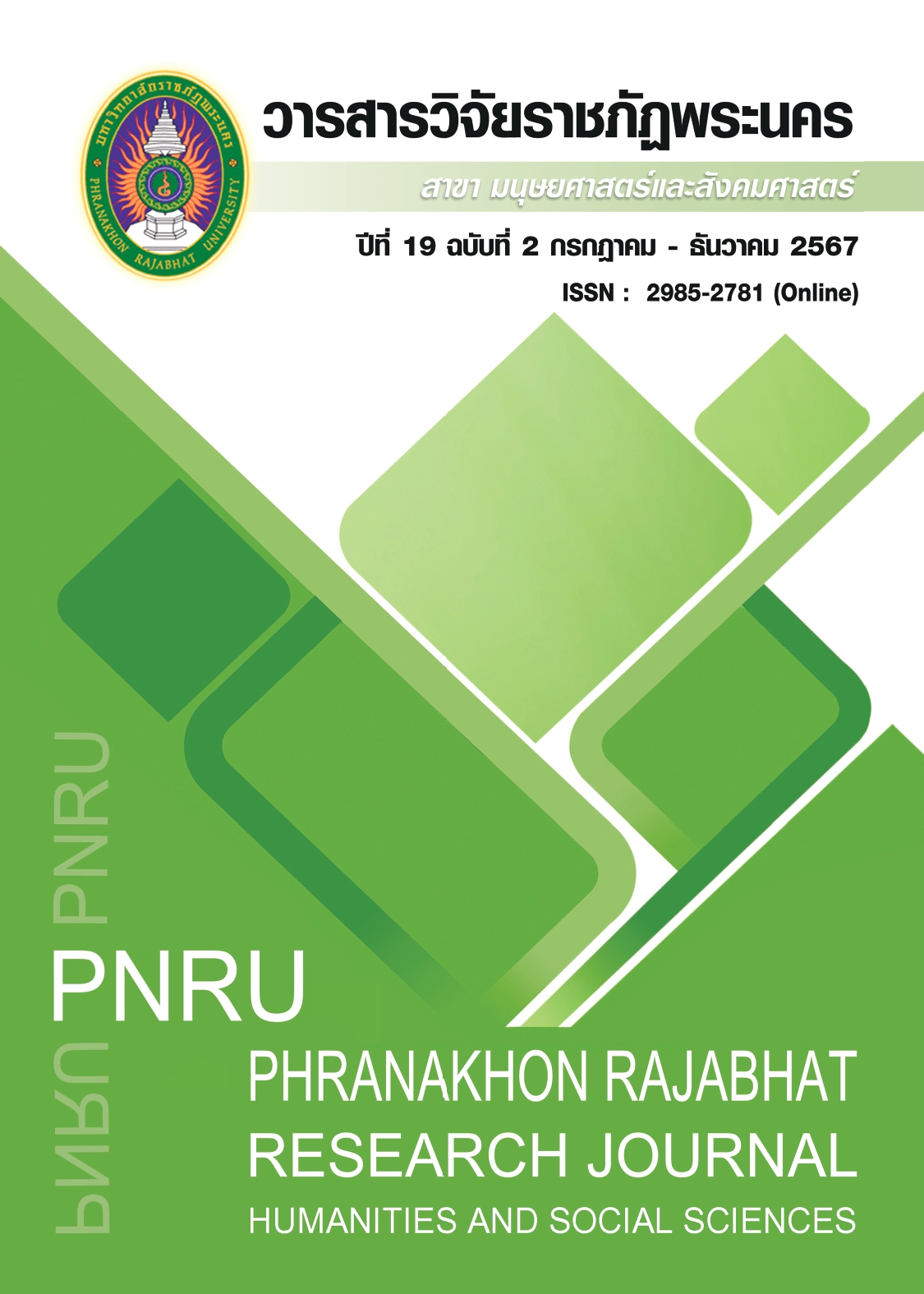THE EFFECTS OF EMOTIONAL REGULATION TRAINING ON COGNITIVE REAPPRAISAL AND EXPRESSIVE SUPPRESSION AMONG WORKERS IN BANGKOK
Main Article Content
Abstract
Background: Emotional regulation issues are critical factors in mental health, often leading to heightened negative emotions and psychiatric symptoms. This study investigates the effectiveness of an emotional regulation intervention in improving emotional regulation strategies, specifically cognitive reappraisal, and expressive suppression, among professional workers in Bangkok, Thailand.
Method: A randomized pretest-posttest control group design was used. Eighty-two professional workers (N= 80) were randomly assigned to either an intervention group or a control group. The intervention consisted of five weekly group sessions focusing on emotional regulation skills, utilizing a combination of Dialectical Behavior Therapy (DBT) and Acceptance and Commitment Therapy (ACT). Cognitive reappraisal and expressive suppression were measured using the Emotion Regulation Questionnaire (Gross & John, 2003).
Results: The intervention group showed significant improvements in emotional regulation, with increased use of cognitive reappraisal and decreased reliance on expressive suppression compared to the control group. These findings suggest that the emotional regulation intervention effectively enhanced participants' ability to manage their emotional responses in the workplace.
Conclusion: Emotional regulation training significantly improves emotional regulation strategies among professional workers, highlighting the potential benefits of incorporating such interventions into workplace wellness programs. This can lead to better emotional well-being and more effective management of workplace stressors.
Article Details

This work is licensed under a Creative Commons Attribution-NonCommercial-NoDerivatives 4.0 International License.
Each publish articles were copyright by Phranakorn Rajabhat University
Any contents which appeared in each articles in the journal were authors personal opinion. It did not relate to Phranakorn Rajabhat University and other instructors in the university. Each authors would take responsibility on their articles. If there are any mistake, the authors will take responsibility themselves
References
Campbell-Sills, L., Ellard, K. K., & Barlow, D. H. (2014). Emotional regulation problems have been recognized as a basic mechanism in mental illness. Journal of Psychological Research, 12(3), 233-245.
Gross, J. J., & John, O. P. (2003). Individual differences in two emotion regulation processes: Implications for affect, relationships, and well-being. Journal of Personality and Social Psychology, 85(2), 348-362.
Gratz, K. L., & Gunderson, J. G. (2006). Preliminary data on an acceptance-based emotion regulation group intervention for deliberate self-harm among women with borderline personality disorder. Behavior Therapy, 37(1), 25-35.
Hayes, S. C., Strosahl, K. D., & Wilson, K. G. (2012). Acceptance and Commitment Therapy: The Process and Practice of Mindful Change (2nd ed.). Guilford Press.
John, O. P., & Gross, J. J. (2004). Healthy and unhealthy emotion regulation: Personality processes, individual differences, and life span development. Journal of Personality, 72(6), 1301-1334.
Neacsiu, A. D., Eberle, J. W., Kramer, R., Wiesmann, T., & Linehan, M. M. (2014). Dialectical behavior therapy skills for transdiagnostic emotion dysregulation: A pilot randomized controlled trial. Behaviour Research and Therapy, 55, 89-99.
Neacsiu, A. D., & Linehan, M. M. (2014). DBT skills: An intervention for emotion dysregulation. In J. J. Gross (Ed.), Handbook of Emotion Regulation (2nd ed., pp. 491-507). Guilford Press.
Rathus, J. H., & Miller, A. L. (2015). DBT skills manual for adolescents. Guilford Publications.
Sahlin, H., Bjureberg, J., Hedman-Lagerlöf, E., Gratz, K. L., Tull, M. T., Jokinen, J., ... & Ljótsson, B. (2017). Emotion regulation group therapy for deliberate self-harm: A multi-site evaluation in routine care using an uncontrolled open trial design. BMJ Open, 7(10), e016220.
Vranjes, I., Baillien, E., Vandebosch, H., Erreygers, S., & De Witte, H. (2017). Emotion regulation and exposure to workplace bullying. European Journal of Work and Organizational Psychology, 26(5), 732-746.
Watson, D., & Clark, L. A. (1999). The PANAS-X: Manual for the Positive and Negative Affect Schedule - Expanded Form. University of Iowa.


